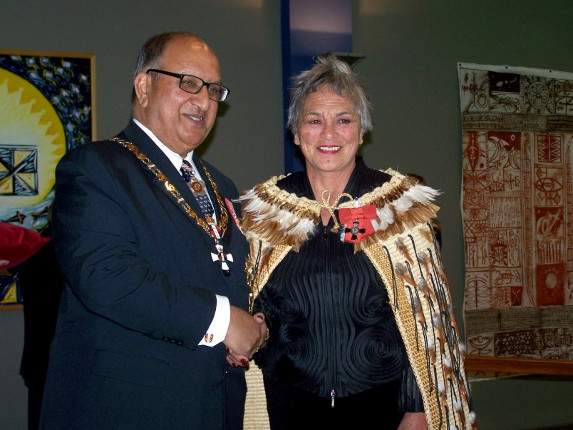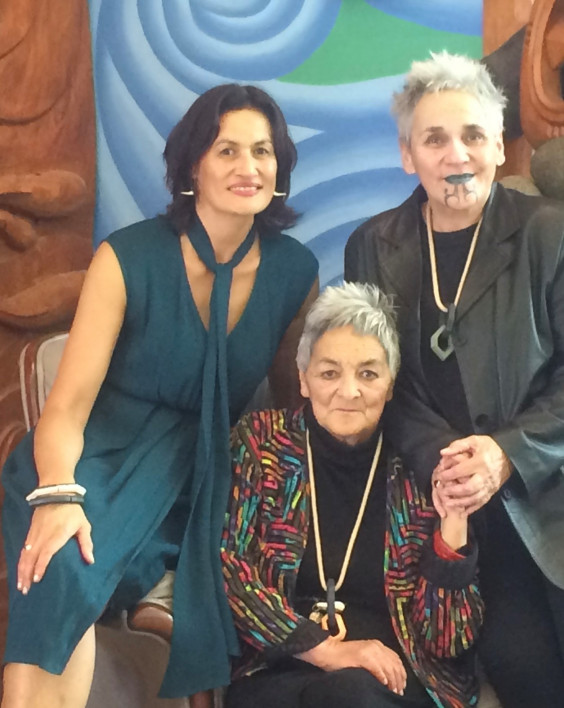News
Published 2 May 2024Remembering Ngāpare Hopa

Royal Society Te Apārangi is saddened to learn of the passing of Dr Ngāpare Hopa MNZM (Tainui, Ngāti Tūwharetoa). She was the first wahine Māori to gain a D.Phil from the University of Oxford.
As a leading Māori scholar, Hopa promoted positive relationships between cultures and a greater understanding of New Zealand’s history.
Her leadership of the Māori Studies Department at Waipapa Taumata Rau | University of Auckland was one of many ways she contributed to Māori education, arts, and research over more than 40 years. Her career included a decade at the University of Waikato, and four years serving on the Waitangi Tribunal.
Hopa grew up in Gordonton, in the Waikato, until she moved to Auckland to attend Queen Victoria Boarding School and Epsom Girls’ Grammar School. Hopa went on to study at Waipapa Taumata Rau | the University of Auckland, then trained as a teacher. She taught at various schools and worked for a year as a cadet Māori Welfare Officer before heading overseas. Hopa gained a B.Litt and a D.Phil in anthropology at The University of Oxford, with research on kinship and networks among urban Māori.
Emeritus Professor Ngahuia Te Awekotoku CRSNZ says she remembers Hopa as a mentor and a friend when she was an emerging scholar.

Dr Ngāpare Hopa (foreground) with Associate Professor Marama Muru-Lanning (Waikato, Ngāti Maniapoto) and Emeritus Professor Ngāhuia Te Awekotuku.
"[I remember her] as a fabulously stylish woman; as a talented musician who played an extraordinary, massive concert harp; as a formidable fierce black belt in Aikido; as a generous Māori living in Amerika, with an open door policy of sumptuous manaakitanga."
Te Awekotuku says Hopa was one of the architects of the Waikato Tainui settlement process and a contributor to the establishment of the Tainui Endowed College.
"[She was] an utterly singular and luminous human being. I love her. I will miss her. A light has gone out in our world."
In her recently released book Hine Toa: A story of bravery published by HarperCollins Aotearoa New Zealand, Te Awekotoku writes about when she first met Hopa in 1961:
"That year, a woman called on my kuia. She was an acquaintance of Aunty Jess. My first impression of this special guest remains to this day: she was shapely and petite, and had a light but perfectly modulated BBC voice. Her name was Ngāpare Hopa. Her hair was in one raven-black impossibly long ringlet that curled over one shoulder, draping across her pale cashmere jumper like an Italian movie star’s.
"Ngāpare was interviewing my kuia for her book, The Art of Piupiu Making, before she set off for Oxford University in England. She sat attentively with my kuia while my mother and aunty made cups of tea and served hot rēwena bread with golden syrup. Ngāpare wrote everything down in a notebook with a hard cover.
"I was near the door, silent, and I stroked my little Samy cat as I observed what the visitor was doing. While the women murmured together in Māori and English, she never stopped writing. She said she was going to be an anthropologist, recording the stories of our people, for our people.
"Her presence in our home was like a premonition. She was writing about us; she was recording my kuia’s stories; she was saying that they were important. That what my kuia knew about harakeke and paru and muka, about tukutuku and tāniko – all those things we took for granted, that my kuia simply did, every day – was really important. That it was worth putting down in a real book, not just a magazine like Te Ao Hou, but a book with a hard cover. And she, Ngāpare, was writing it!"
Te Awekotoku says we have lost a treasure.
